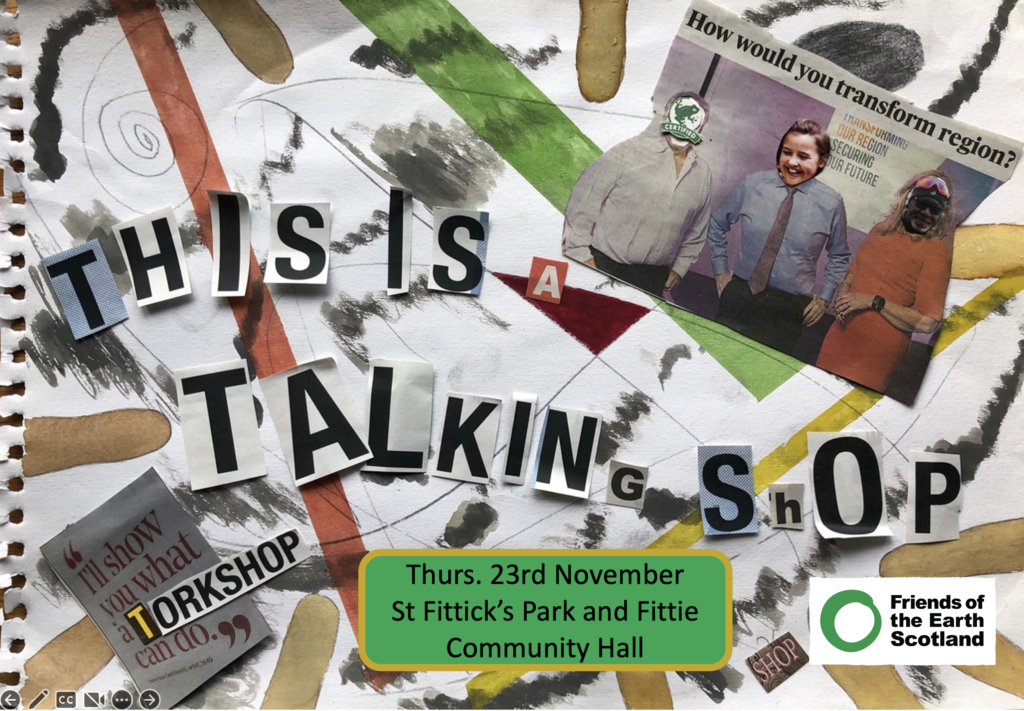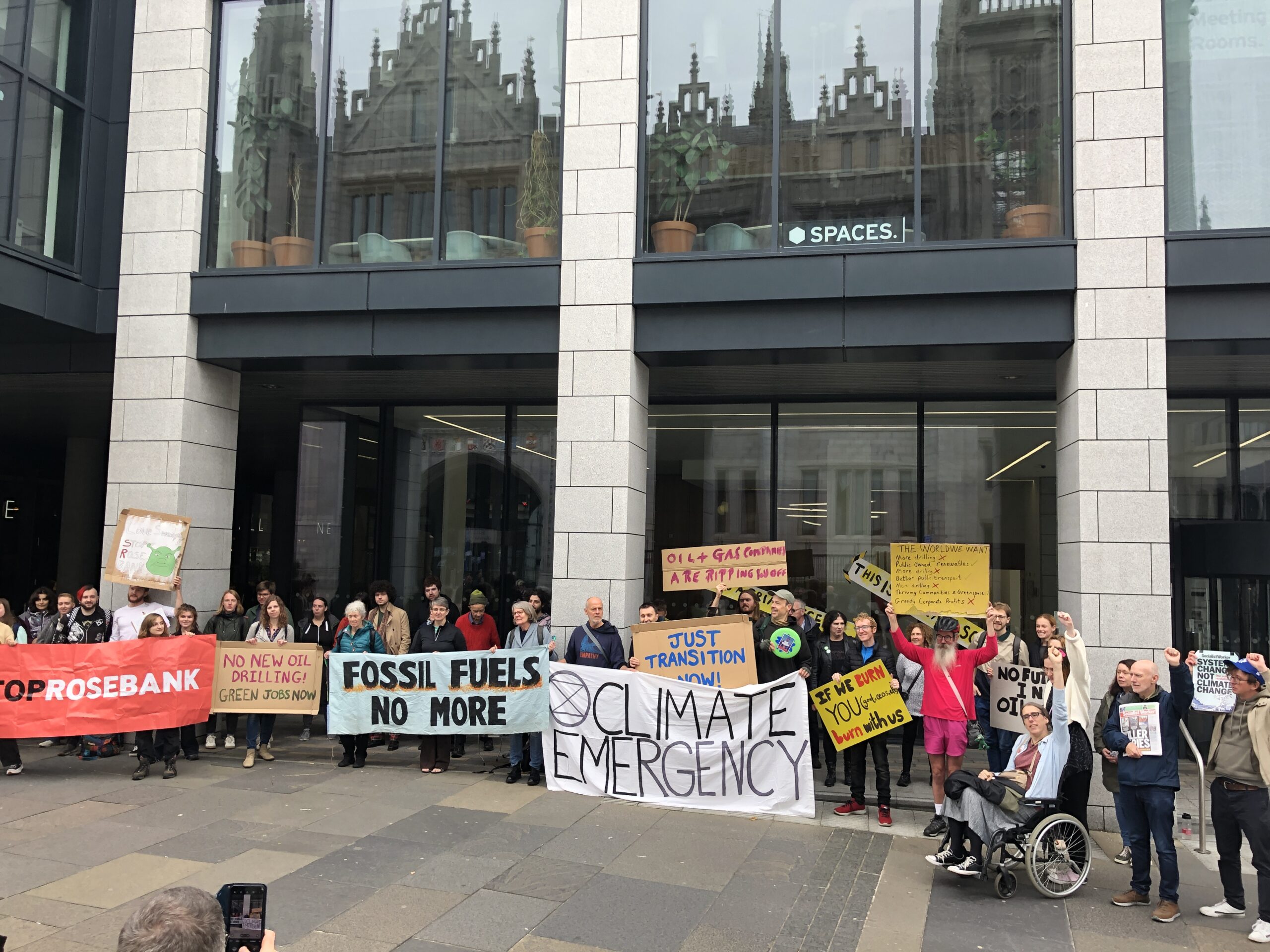
Transitioning away from the oil culture of North East Scotland
Being a Just Transition Organiser in the North Earth of Scotland can sometimes feel like an overwhelming task. At the macro level, it means bringing people together to achieve the energy and social transition we need. So in 2023 I’ve spent my time focusing on the grassroots level.
I have concentrated my energy on Aberdeen, by supporting groups and organising events around the issues a real just transition needs to be about. The most fundamental part of this is rapidly reducing our dependency on fossil fuels with a process that includes redistributing power and wealth for greater equality.
St Fittick’s Park – an unjust transition
I’ve continued to work with the Friends of St Fittick’s Park group, which is currently resisting the corporate destruction of Torry’s last accessible green space. In January, we arranged a coach for the Torry-based campaigners to travel down to a rally outside the Scottish Parliament.
The rally was to demand the Scottish Government honour its various policy commitments of addressing inequality, biodiversity loss and just transition by rejecting Aberdeen’s Local Development plan that rezoned St Fittick’s Park for industrial use. The rally was successful in delaying the decision for five months, but disappointingly the Scottish Government approved the plans in May.
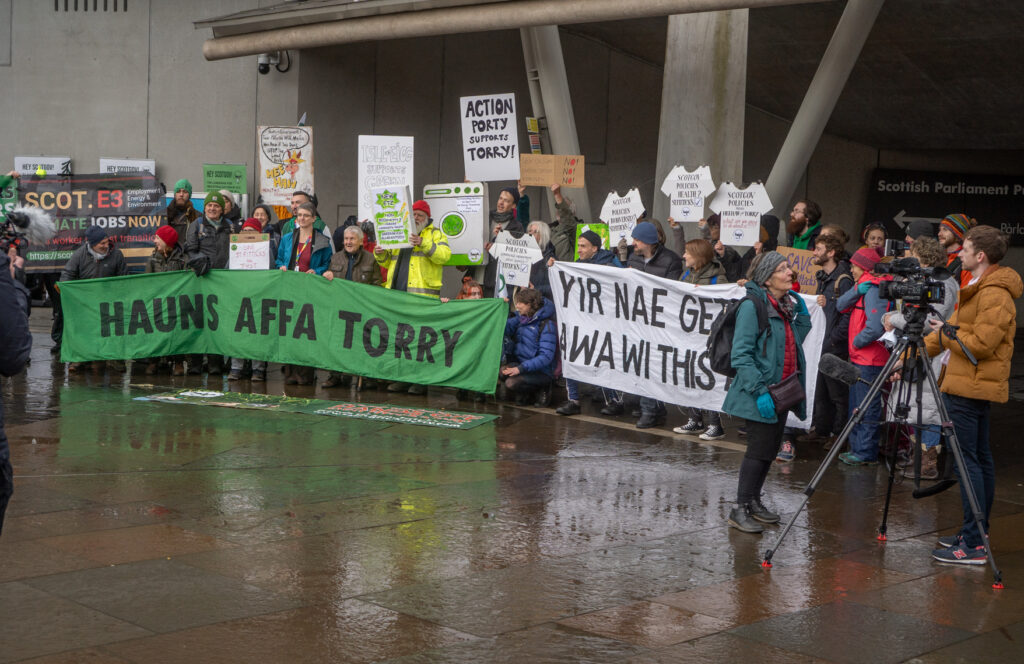
The latest update is that Aberdeen City Council is moving ahead with its plans to industrialise a large section of the park. However, a petition for a judicial review is currently being reviewed by the court of session in Edinburgh. If this is accepted then it will put a stop to any development until the legal case is completed, which could take years, giving campaigners some much needed respite after spending the last three years fighting to protect their beloved park.
It’s been a long hard slog for many of the campaigners, so the solidarity shown by the wider climate justice movement during the Edinburgh march against fossil fuels was most welcome.
Aberdonians say no to new oil licences
From the way the UK Government’s announcement to approve the Rosebank oil field was reported in the mainstream media, it would be easy to think that everyone in the city supports this terrible decision. Obviously, this is not true – there is a significant number of people here who do not support new fossil fuels.
In October, I helped to organise a rally outside the North Sea Transition Authority’s offices in the centre of Aberdeen. This was attended by around 50 Aberdonians, all to say no to new oil and gas licences. Earlier in the summer people in Aberdeen showed further opposition to Rosebank during the Wave of Resistance rally held at Aberdeen Beach. This was one of a few beach-based protests up and down these islands, organised jointly by a host of groups who back the Stop Rosebank campaign.
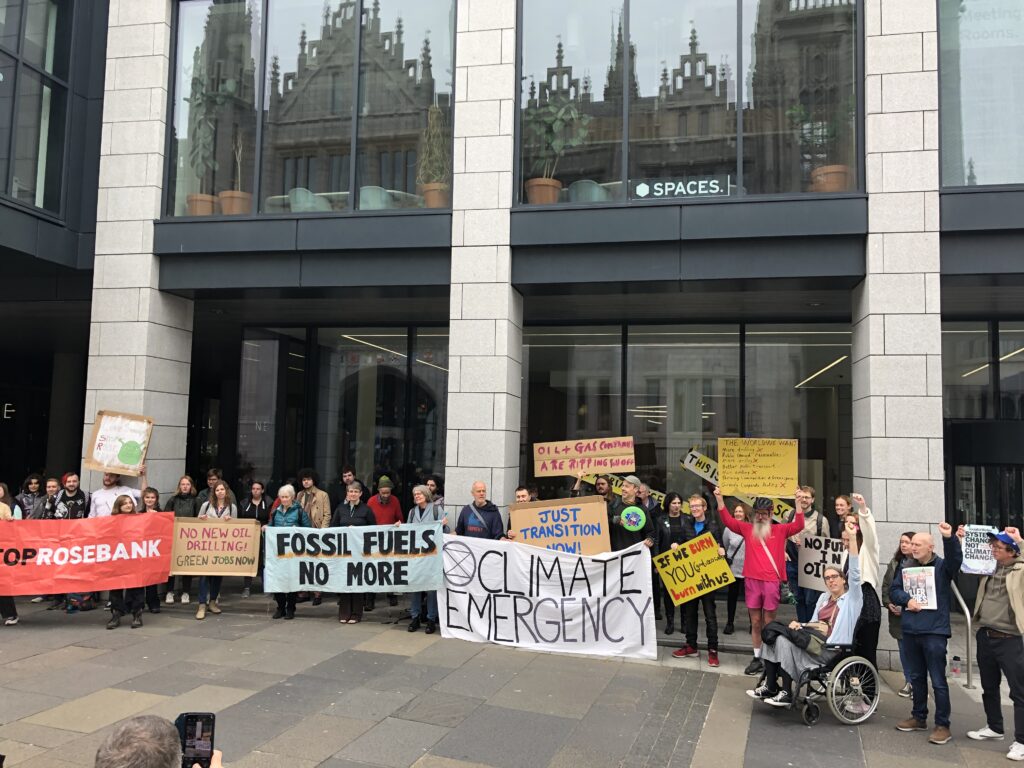
Joining others, whether that’s on the streets or indeed our beaches to resist the fossil fuel industry, is great for morale, especially when living in Aberdeen where its dominance is all easy to see.
Small win against a big polluter’s greenwashing
I also managed to directly influence arts conference organiser to drop sponsorship from a company that directly profits from fossil fuels. I was due to speak at Creative Carbon Scotland’s Springboard event in March, which was focussed on climate justice for people who work in the arts.
I found out the event was sponsored by the Swedish energy company Vattenfall who profit from selling gas and own coal fired power stations – but you would not know this from glancing through their shiny website that is full of wind turbines images and young people who look similar to a famous Swedish climate activist.
I did not want to be a part of Vattenfall’s greenwashing, so informed the organisers I would be regretfully drop out. However, all credit to the folk at Creative Carbon Scotland, they decided to drop the sponsorship, having reviewed the initial decision. Until my intervention I don’t think they were fully aware of Vattenfall’s connections to fossil fuels. So, it was a nice, unexpected small win.
Transitioning from petro-culture
In 2022, we commissioned Aberdeen-based filmmaker Sara Stroud to make a film about the city’s relationships to oil. ‘The Future is Not F*cked’ had further screenings throughout 2023, including in Peterhead and in a pop-up shop we created in the centre of Aberdeen. The shop ran for three weeks and was a joint project with the arts organisation Look Again and local curator Svetlana Panova.
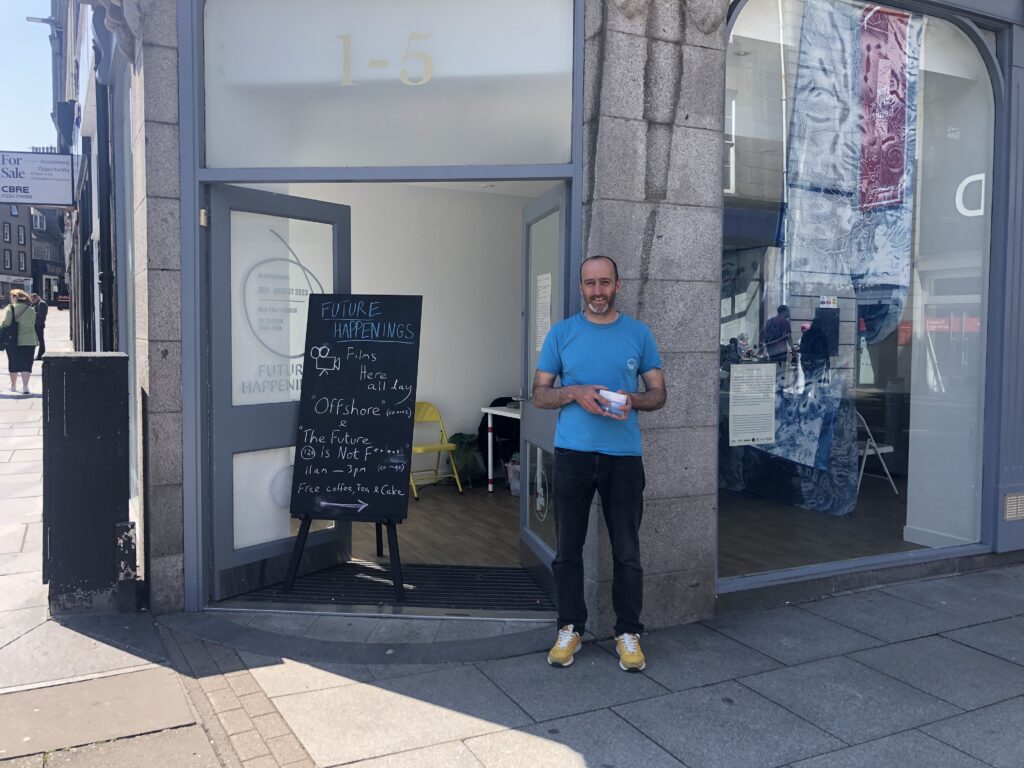
We called the shop ‘Future Happenings’ and planned a programme of events where passers-by could gather, share and witness inspiring ideas for the city, that tried to broaden imaginations of energy transition beyond the logic of oil. This included screenings of Sara’s film, interactive games and a radical café that invited Saturday shoppers to come and have some political and environmental chats over a cup of tea and fine piece.
The Future is Not F*cked poetry project and Future Happenings were attempts to expose how deep the ‘oil culture’ in Aberdeen seeps. This work of cultural change can take a long time and be hard to identify clear impacts.
Telling different stories in the future
In December I organised an event called ‘This is a Talking Shop’ that drew a variety of people from across Aberdeen. The day was all about encouraging participants to think and reflect with others working towards change in Aberdeen, about what are the underlying narratives that drive the stories that get told about our city. Are these helpful in a time of climate breakdown? Are they harmful? How does our own work or practice perpetuate these? What should the story be and how do we begin to make that happen?
In 2024, the just transition campaign in the North East will focus on narrative change for region, by telling new stories that are not so centred around the interest of big oil corporations but will be focused on what everyday people want for their city and region in an energy transition.
